Dominik Filipiak
ICML Topological Deep Learning Challenge 2024: Beyond the Graph Domain
Sep 08, 2024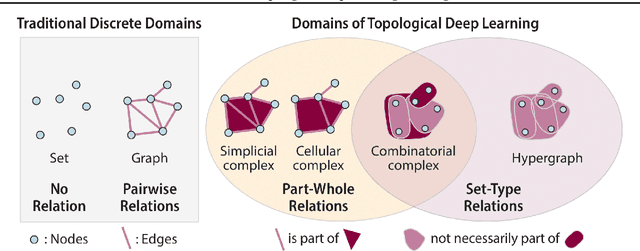
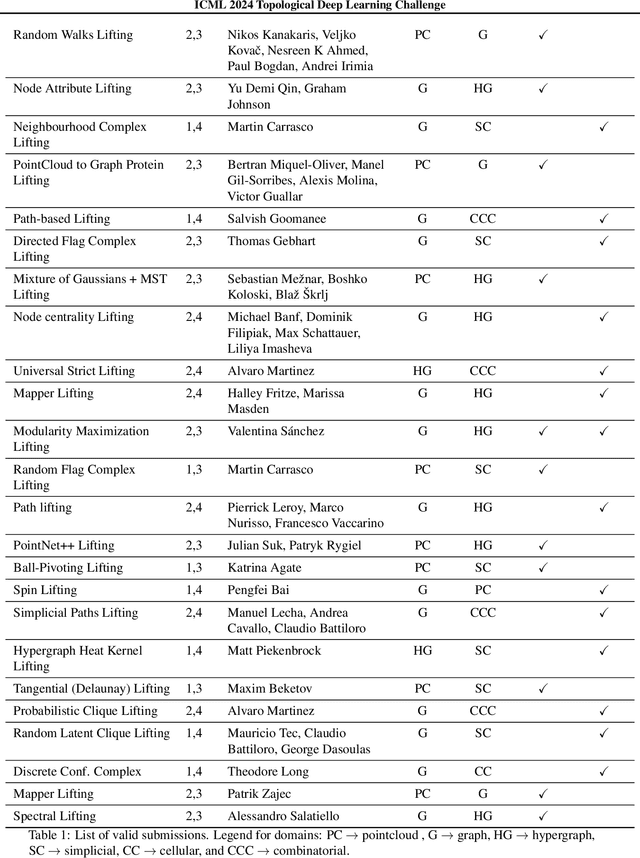
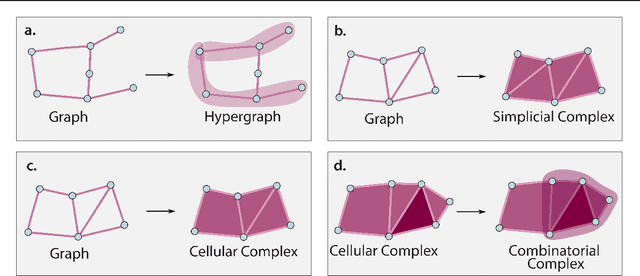
Abstract:This paper describes the 2nd edition of the ICML Topological Deep Learning Challenge that was hosted within the ICML 2024 ELLIS Workshop on Geometry-grounded Representation Learning and Generative Modeling (GRaM). The challenge focused on the problem of representing data in different discrete topological domains in order to bridge the gap between Topological Deep Learning (TDL) and other types of structured datasets (e.g. point clouds, graphs). Specifically, participants were asked to design and implement topological liftings, i.e. mappings between different data structures and topological domains --like hypergraphs, or simplicial/cell/combinatorial complexes. The challenge received 52 submissions satisfying all the requirements. This paper introduces the main scope of the challenge, and summarizes the main results and findings.
A Wiener process perspective on local intrinsic dimension estimation methods
Jun 24, 2024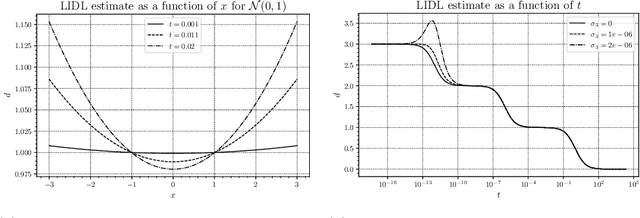
Abstract:Local intrinsic dimension (LID) estimation methods have received a lot of attention in recent years thanks to the progress in deep neural networks and generative modeling. In opposition to old non-parametric methods, new methods use generative models to approximate diffused dataset density and scale the methods to high-dimensional datasets like images. In this paper, we investigate the recent state-of-the-art parametric LID estimation methods from the perspective of the Wiener process. We explore how these methods behave when their assumptions are not met. We give an extended mathematical description of those methods and their error as a function of the probability density of the data.
Polite Teacher: Semi-Supervised Instance Segmentation with Mutual Learning and Pseudo-Label Thresholding
Nov 07, 2022

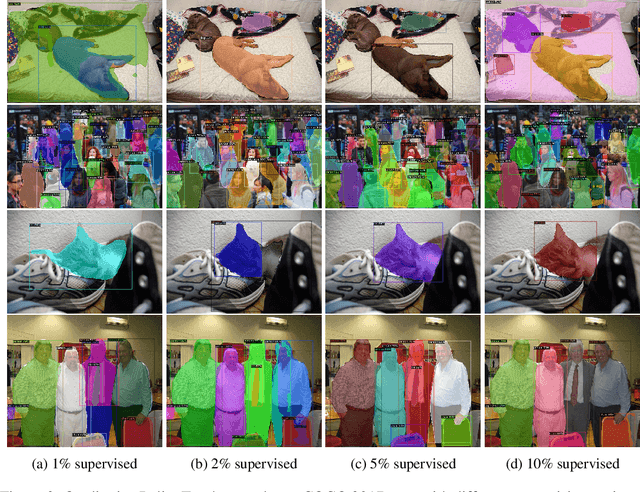

Abstract:We present Polite Teacher, a simple yet effective method for the task of semi-supervised instance segmentation. The proposed architecture relies on the Teacher-Student mutual learning framework. To filter out noisy pseudo-labels, we use confidence thresholding for bounding boxes and mask scoring for masks. The approach has been tested with CenterMask, a single-stage anchor-free detector. Tested on the COCO 2017 val dataset, our architecture significantly (approx. +8 pp. in mask AP) outperforms the baseline at different supervision regimes. To the best of our knowledge, this is one of the first works tackling the problem of semi-supervised instance segmentation and the first one devoted to an anchor-free detector.
KGTN-ens: Few-Shot Image Classification with Knowledge Graph Ensembles
Nov 06, 2022Abstract:We propose KGTN-ens, a framework extending the recent Knowledge Graph Transfer Network (KGTN) in order to incorporate multiple knowledge graph embeddings at a small cost. We evaluate it with different combinations of embeddings in a few-shot image classification task. We also construct a new knowledge source - Wikidata embeddings - and evaluate it with KGTN and KGTN-ens. Our approach outperforms KGTN in terms of the top-5 accuracy on the ImageNet-FS dataset for the majority of tested settings.
n-CPS: Generalising Cross Pseudo Supervision to n networks for Semi-Supervised Semantic Segmentation
Dec 15, 2021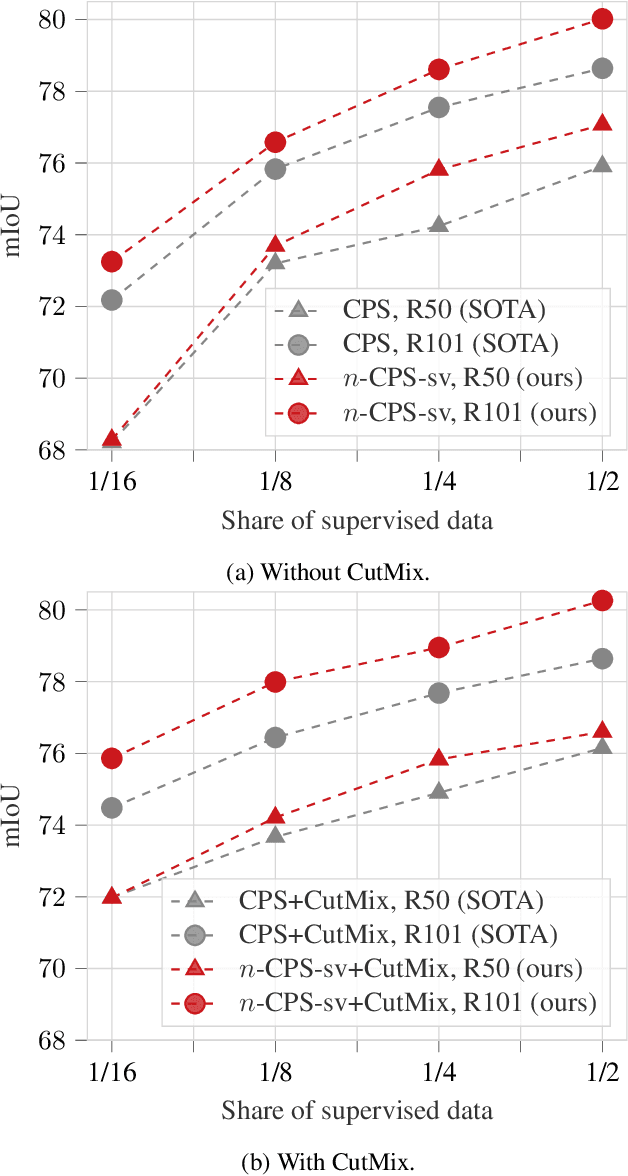
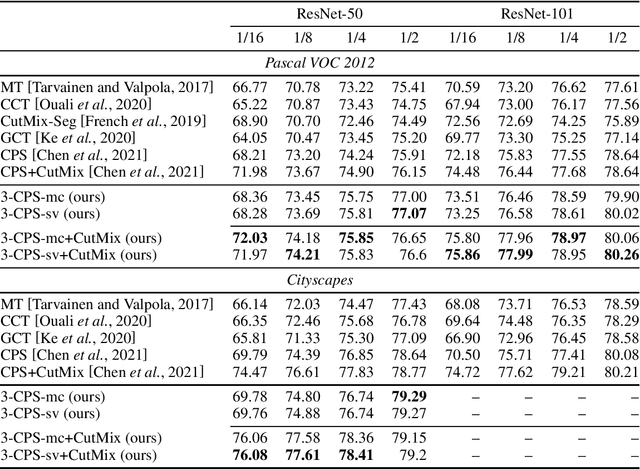
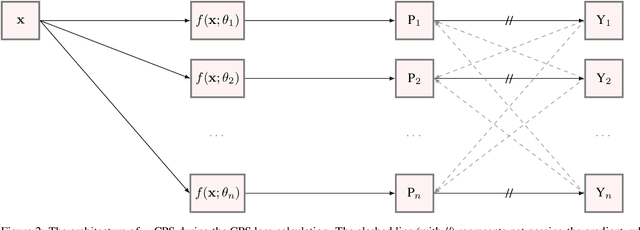

Abstract:We present n-CPS - a generalisation of the recent state-of-the-art cross pseudo supervision (CPS) approach for the task of semi-supervised semantic segmentation. In n-CPS, there are n simultaneously trained subnetworks that learn from each other through one-hot encoding perturbation and consistency regularisation. We also show that ensembling techniques applied to subnetworks outputs can significantly improve the performance. To the best of our knowledge, n-CPS paired with CutMix outperforms CPS and sets the new state-of-the-art for Pascal VOC 2012 with (1/16, 1/8, 1/4, and 1/2 supervised regimes) and Cityscapes (1/16 supervised).
 Add to Chrome
Add to Chrome Add to Firefox
Add to Firefox Add to Edge
Add to Edge